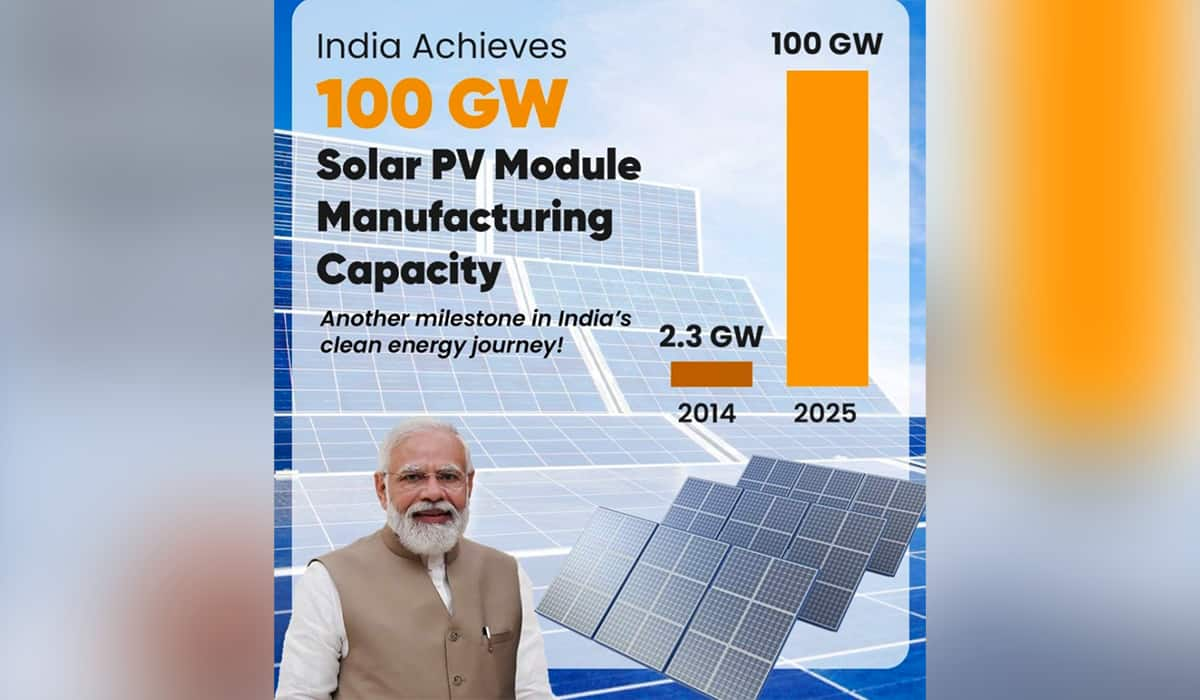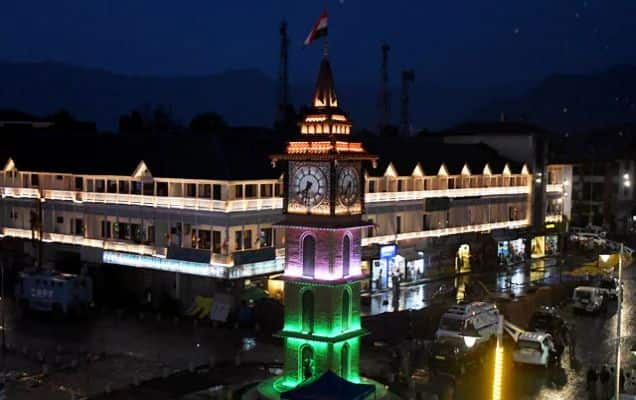It is the last day of the year 2017 and I am fortunate to have got the opportunity of seeking the blessings of Shri Narayana Guru and all the sages present on the stage today. I hope that with the blessings of Shri Narayana Guru, the first ray of the year 2018 will bring peace, goodwill and a new light of development for the entire world and the country. Visiting Sivagiri Mutt has always been a spiritual bliss for me. You have increased that pleasure further by giving me the opportunity to inaugurate the Sivagiri pilgrimage. I am extremely grateful to Shri Narayana Dharma Sangham Trust and all of you.
Brothers and sisters,
One of the characteristics of our country and the society is that the process of removing the internal weaknesses and evils from our society has been going on continuously. From time to time Saints, sages and the great souls have played a significant role in expediting this process. The pious souls have spent their entire lives to liberate the society from these evils.
A pious soul like respected Swami Narayana Guruji had strived to awaken the society against racism, class discrimination and communism and to unite the society. It was not an easy task for Shri Narayana Guru to achieve this success in the field of education or his efforts in removing the social evils and untouchability. He had to face a lot of trouble during this period of struggle.
Friends,
Shri Narayana Guru Ji's mantra was-
“Freedom through Education,
Strength through Organisation
Economic Independence through Industries.”
He had suggested some measures to improve the society and to empower the Dalits, the deprived and the oppressed. He believed that the poor, the Dalits and the backward people would be able to move forward only when they had the power of education. He had known very well that only when the society was educated that the soul would be filled with faith and introspection. Therefore, he had established the Institutions to promote education and culture not only in Kerala but also in the nearby States. Today, innumerable organizations are involved within the country and abroad to spread the vision of Shri Narayana Guru.
Shri Narayana Guru had worked in the direction of associating every person of the society with his vision. He had promoted truth and cleanliness in the temples instead of talking of miracles. He had modified every ritual that tended to vitiate the atmosphere of temples. Shri Narayana Guru Ji came up with the new management system by removing those non-essential rituals in the worship. He had ensured everyone's rights to worship in temples. Sivagiri pilgrimage, in a way, is also an extension of his broad vision of social reform. It is a symbol of the vision of Shri Narayana Guru that the Sivagiri pilgrimage has been associated with education, cleanliness, the power of truth, unity, knowledge, science, farmers and have incorporated their development into the goals of pilgrimage.
He had said-
“Make use of all that knowledge in practical life. Then the people and the country will progress and prosper. This is the main objective of Shivagiri Pilgrimage”
I am happy that for the past 85 years every time during the Sivagiri pilgrimage, experts from these fields have been invited and their experiences have been heard. Even today the experts from different fields are participating in this programme. I welcome all of you, felicitate you and hope that your ideas will help people to learn something new.
Brothers and sisters,
Sivagiri pilgrimage is a type of river of knowledge in which whoever takes a dip achieves the divinity.
Even during the Kumbh Mela, there is an attempt to unite the vast country. Saints and sages come together and discuss the problems and miseries of the society. Even if there have been some changes over the years, yet there is a specialty of the Kumbh Mela. After every 12 years the Saints gather and decide the future of the society, the direction in which the country should move and the way in which the society should work. These are social resolutions in a way. After that, every 3 years it was analyzed at different places like Nashik, Ujjain and sometimes in Haridwar during the Kumbh Mela. Everything was properly reviewed.
I hope that when all of you meet on this occasion in the end of the year, there is a meaningful dialogue regarding the result of the discussions of the past year. Have we moved a few steps forward on the path showed by Shri Narayana Guru for achieving the goals or not?
Friends,
Be it the Sivagiri pilgrimage or the Kumbh Mela or any other such tradition that strives to liberate the country from its internal evils, these are still very important today. Such pilgrimages in different parts of the country help to unite the country. People come from different states with different ideologies, get to know each other’s traditions and unite in the process.
Friends,
Adi Shankaracharya had propagated his philosophy of Advaita on the holy land of Kerala. The simple meaning of Advaita is the absence of duality - where me and you are not two different entities, we are one. This expression is the intrinsic meaning of Advaita and Shri Narayana Guru had shown this path. Shree Narayana Guru had not only lived by his principle but also had shown the path to the entire global society.
Brothers and sisters,
Even before the commencement of the Sivagiri pilgrimage, religious Parliament was organized in the Advaita Ashram under the leadership of Shri Narayana Guru Ji. People from different walks of life from around the world had attended it. In this Religious Parliament, an appeal was made to the whole world to leave religion-based conflicts and to walk on the path of peace, goodwill and prosperity.
I was told that at the entrance of Religious Parliament the following words were written under the directions of Guruji-
“We meet here not to argue and win,
But to know and be known”
This effort to communicate with each other and understanding each other was very important.
Today if we talk of the global environment, we find that our sages could foresee the crisis and were constantly warning us.
Brothers and sisters,
During the nineteenth and twentieth century a lot of contributions were made by social and religious reform leaders in the freedom movement. The society which was divided into different castes and creeds could not have fought with the British. In order to overcome this weakness there was a massive movement against casteism in different parts of the country. The central idea of those movements and the reform programmes was that there was a need to move the country forward and to break the shackles of slavery and freedom from the internal weaknesses. Those who took charge of these movements gave equal respect to the common people of the country. They associated their spiritual journey with nation building by understanding the need of the country. When the people started dissociating their thoughts from the caste system, the country rose up. The united people of India dismantled the British power.
Friends,
Today the country is facing the same situation once again. People of this land want to see their country free from its internal weaknesses. Thousands of such Institutions can play a vital role in this regard. There is a need to work in the direction of awakening the people and removing not only racism but also other evils of the society that are harming the country. Even though we had broken the shackles of slavery on August 15, 1947, the imprints of those chains are still visible on our socio-economic system. We can free ourselves from this only by your support.
Brothers and sisters,
Great souls like Jyotiba Phule, Savitribai, Raja Ram Mohan Roy, Ishwar Chandra Vidyasagar and Dayanand Saraswati had fought a long battle for the honour and respect of the women of the society. Today their souls will be pleased to see how several massive steps have been taken for the women's rights in the country.
The fact that several Muslim mothers and sisters have suffered due to Triple Talaq for such a long time is not hidden any longer. After such a long battle they have found the way to get rid of Triple Talaq.
Brothers and sisters,
Saints, sages and monks have told us-
“नर करनी करे तो नारायण हो जाए”।
It means that one can be Narayana only by accomplishing something and not by narratives or doing rituals. This accomplishment itself is our Mantra of 'Sankalp se Siddhi' (Attainment through Resolve). This is the journey towards new India for 125 crore Indians.
This journey will be expedited in 2018. We all Indians will take our nation to new heights by taking stringent actions against black money, corruption and benami properties, working against terrorism and racism and moving with the Mantra of Reform, Perform and Transform as well as 'Sabka Saath Sabka Vikas' in the year 2018. I would like to end my speech with these promises and intentions.
Once again my best wishes to you all and the devotees of Shri Narayana Guru for the Sivagiri pilgrimage and the New Year.
Thanks a lot!


















